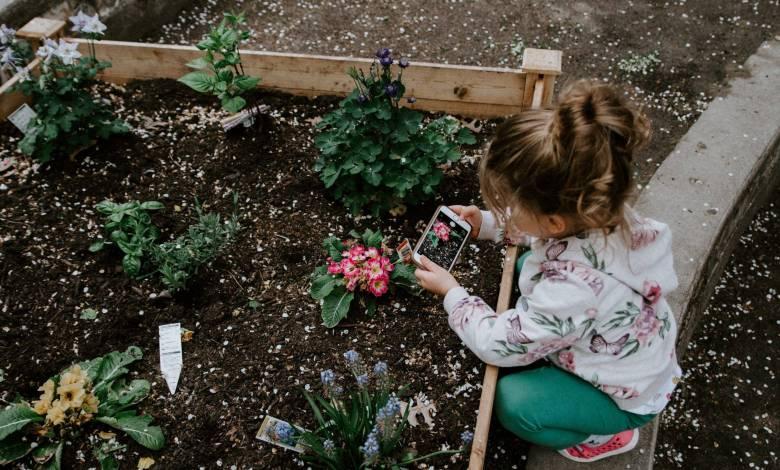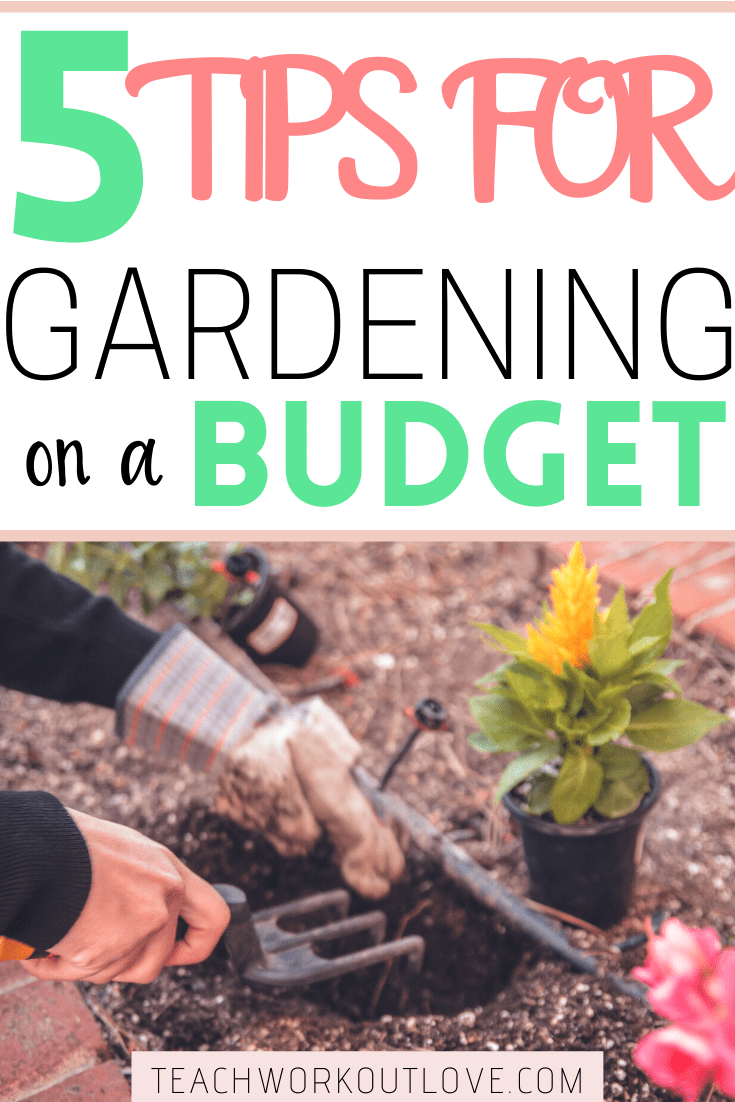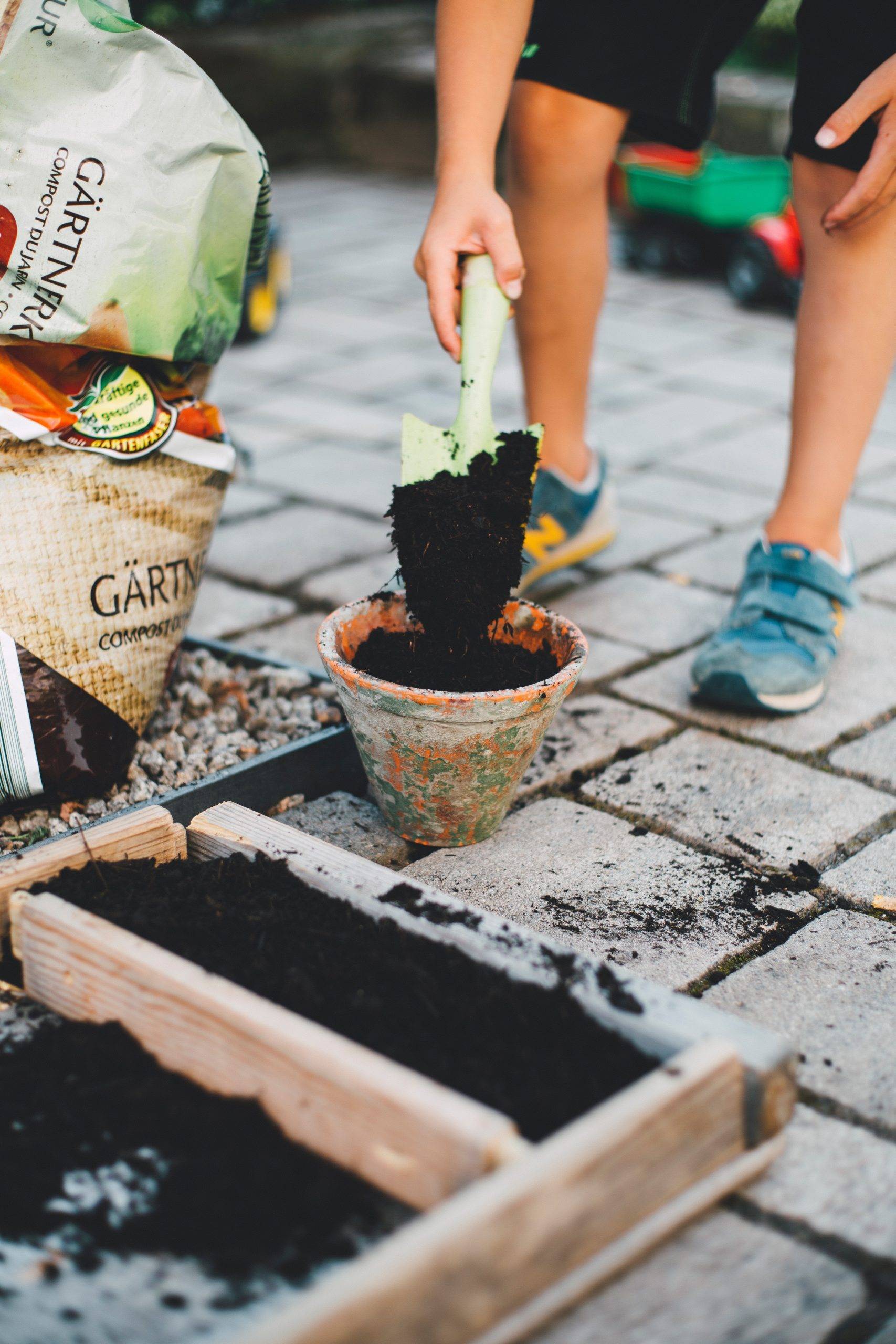
If you’re lucky enough to have a lovely garden outside your house, then making the most of it is the best option. A gorgeous green space uplifts your mood, while gardening as a hobby is a great way to keep fit and relieve the stress after a long day at work. Digging deep is not a necessity for becoming good at gardening — that’s what I discuss in detail at BumperCropTimes website. Want to know how to turn a money-draining garden into a money-saving one? In this post, I will share my experience-backed tips on how to enjoy a splash of color in your garden without having to splash out a lot of money on the whole thing. So read on if you want to learn more about gardening on a budget in a productive and successful way.

1. Grow Your Own Food & Herbs
Getting carried away when purchasing seeds and plants for your garden is very easy. So if you’re a beginner gardener and want to do it right without splurging on your new hobby, you can save yourself some money by growing only what you will eat. Yep. If you’ve recently started exercising your green thumb, and gardening on a budget is one of your current goals, then I recommend that you stave off from buying way too many seeds and plants for your garden.
Furthermore, make sure you grow vegetables you can preserve, store, and freeze, such as onions, potatoes, tomatoes, cucumbers, peas, beets, etc. That way, you will make the most of your garden all year round. Also, focus on growing expensive vegetables, or the ones that you eat all the time. This will bring a high return on your initial investment.
Don’t forget that you can grow your own herbs as well. It’s definitely going to save you some money, for you won’t have to purchase herbs for culinary purposes at the grocery store anymore. In a nutshell, by being practical in this aspect, you will accomplish three goals at once: gain experience in gardening and grow your own food — while getting the best bang for your buck along the way.

2. Purchase Gardening Supplies in Autumn
Usually, stores want to clear out their gardening equipment in autumn, just before they update their assortment with festive products. No doubt, most of your crops will be picked by the fall. Still, purchasing some gardening inventory in September is a good idea, for the discounts are often really huge. So make sure you think ahead when it’s about buying the supplies you might need, such as spades, shovels, buckets, and rakes.
3. Focus on Making Your Own Free Fertilizer
Creating your own compost takes more time than purchasing good-quality fertilizer. However, if gardening on a budget is your current goal, then you’ve definitely got the patience needed for making your own compost. Just collect some kitchen waste (eggshells, banana peels, raw fruit and vegetable scraps, coffee grounds), garden debris, as well as paper and cardboard to feed your plants with.
Your own eco-friendly compost will enhance the soil, and you will no longer need to buy commercial fertilizers for your garden. To make your own compost, collect the aforementioned kitchen scraps and garden waste in a corner of your yard. Rotate the compost with a pitchfork from time to time. Feel free to use it in your garden as a free fertilizer at regular intervals.

4. Plant at the Right Time
Planting your crops too early will result in them dying. Picking your crops too late will lead to the same lethal effect. The aspect of timing is paramount when it’s about planting your garden. For instance, if you’re planning to plant vegetables, April is the most suitable month for you. Depending on your current location, you may want to start planting in early March, too.
5. Encourage Beneficial Insects to Visit Your Garden
Instead of buying chemicals or even using organic products, concentrate on planting stuff that attracts beneficial insects to visit your garden. The good bugs will eat the bad ones and i.e. will greatly contribute to balancing your garden’s ecosystem.
6. Collect Rainwater for Irrigation
If you want to reduce your household water bill while making the most of your garden’s potential, I suggest that you collect rainwater for irrigation. Feel free to buy a commercially made rain barrel for these purposes. Alternatively, modifying an existing barrel for collecting rain is also a good (and cost-effective) idea.
Cutting to the Chase: Discipline is Key
As you can see, there are plenty of effective tips on gardening on a budget. While making the best out of them, don’t forget that gardening is about doing things that need to be done when they need to be done — not when you’re up for doing them. Getting behind on watering will result in your plants dying. And the same goes for an insect invasion. Therefore, discipline is what’s vital when it comes to successful gardening on a budget.
This post contains affiliate links and I may receive a commission, at no additional cost to you, should you purchase through one of my links. Please see my disclosure for more information.





